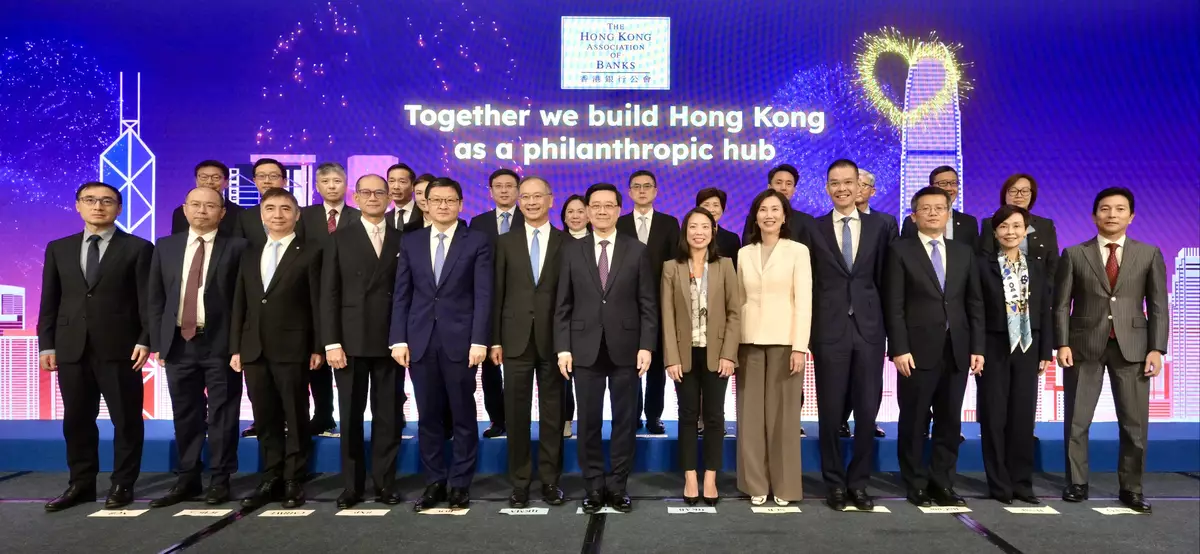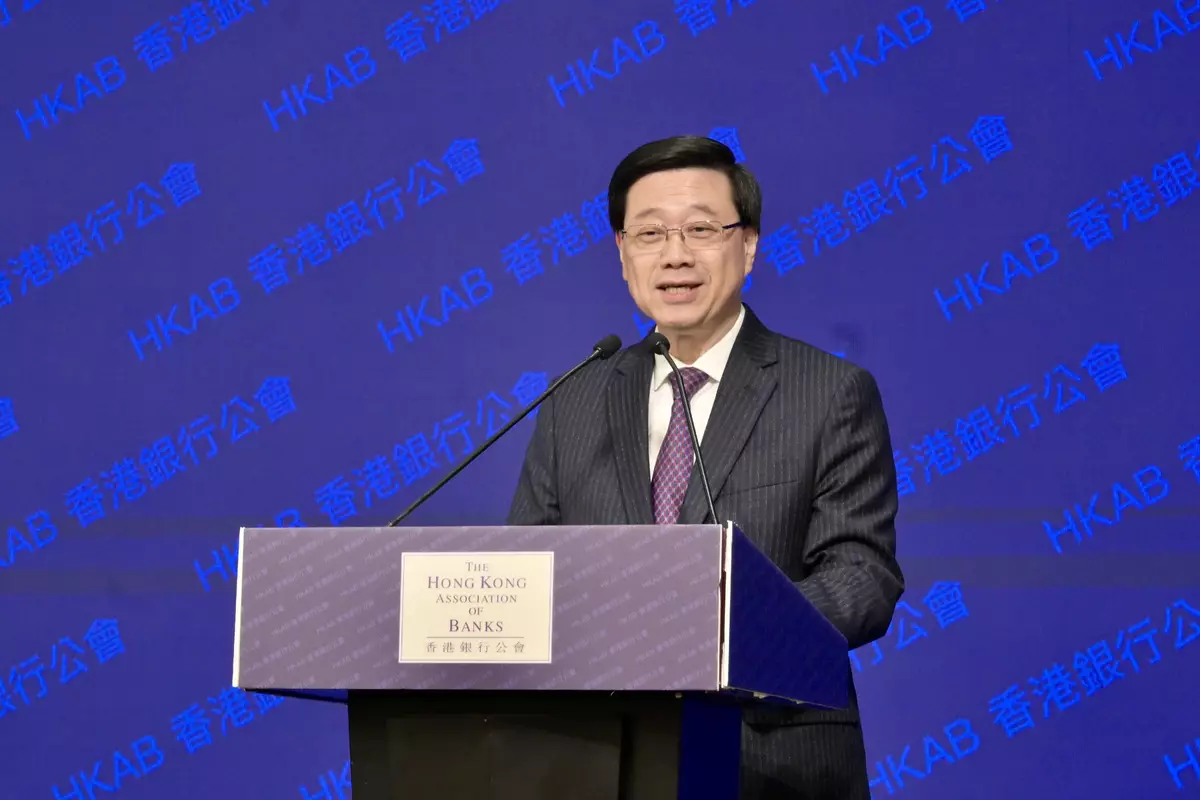CFS announces test results of targeted surveillance on nutrition labelling of canned meat
The Centre for Food Safety (CFS) of the Food and Environmental Hygiene Department today (November 27) released the test results of a targeted food surveillance project on the nutrition labelling of canned meat. Among 40 samples tested, two samples were found with saturated fatty acids or sugars content inconsistent with the declared values on their nutrition labels, while one sample was found with the heading of the list of ingredients not properly declared on the food label. The remaining 37 samples passed the test.
"The CFS collected samples from different retail outlets for the targeted food surveillance project. Tests were conducted to check if the energy content and specified nutrient content (total fat, saturated fat, trans fat, sugars, sodium, protein, carbohydrates, and more) are consistent with the declared values on their nutrition labels. The food labels were also checked to see if they comply with relevant requirements under the laws," a spokesman for the CFS said.
The CFS has announced the irregularities on the actual nutrient contents earlier. The vendors concerned have also stopped selling the relevant batch of the affected products. Prosecution will be instituted should there be sufficient evidence.
The Food and Drugs (Composition and Labelling) Regulations (Cap. 132W) require all applicable prepackaged foods to list the ingredients and the content of energy plus seven core nutrients, namely carbohydrates, protein, total fat, saturated fat, trans fat, sodium and sugars, and regulate any associated nutrition claims. The list of ingredients of all prepackaged food shall also be preceded by an appropriate heading consisting of the words "ingredients", "composition", and "contents" or words of similar meaning.
Nutrition labelling can assist consumers in making informed food choices, encourage food manufacturers to apply sound nutrition principles in the formulation of foods, and regulate misleading or deceptive labels and claims. According to Section 61 of the Public Health and Municipal Services Ordinance (Cap. 132), if any person falsely describes food or misleads as to the nature, substance or quality of the food on a label of the food sold by him or her, he or she shall be guilty of an offence and be liable to a maximum fine of $50,000 and six months' imprisonment upon conviction.
The CFS will continue to conduct surveillance on other food samples to check if their energy content and specified nutrient content are consistent with the declared values on their nutrition labels, and the results will be released in due course. The spokesman reminded the food trade to comply with the law, and urged members of the public to pay attention to the information on nutrition labels when purchasing food to make informed food choices to achieve a balanced diet and stay healthy.
Speech by CE at Hong Kong Association of Banks Distinguished Speaker Luncheon
Following is the speech by the Chief Executive, Mr John Lee, at the Hong Kong Association of Banks Distinguished Speaker Luncheon today (November 27):
Ms Luanne Lim (Chairperson of the Hong Kong Association of Banks), distinguished guests, ladies and gentlemen,
Good afternoon. It is my pleasure to be here, once again, to address you at what has become an eminent luncheon tradition, one that goes back to 2006. I'm grateful to the Hong Kong Association of Banks for organising this welcome gathering. And, of course, my thanks to the Association's distinguished members: 151 banks from 28 countries and regions.
This afternoon brings us together to exchange insights, and to look to the future with renewed vigour and purpose. That future, let me add, looks bright thanks to our collective achievements and continuing good co-operation.
When it comes to achievements and co-operation, let me begin with the launch, in March, of nine measures to support our small and medium-sized businesses, thanks to the Hong Kong Monetary Authority (HKMA) and the Banking Sector SME Lending Coordination Mechanism. Some 20 000 SMEs (small and medium-sized enterprises) had benefitted, I'm pleased to note, through the first six months of those support measures.
And, in August, a joint Taskforce on SME Lending was established to support SME access to bank financing, at the individual and sector levels. For that, my thanks to the principals behind the Task Force – the HKMA and you, the Hong Kong Association of Banks.
Yes, SMEs are the backbone of our economy. They account for over 98 per cent of Hong Kong's enterprises, employing around 45 per cent of the private sector workforce in our city. We must do everything we can to see them through challenges, and open the doors of opportunities for them.
Which is why I emphasised SME support in my third Policy Address, delivered last month, including allowing companies borrowing under the SME Financing Guarantee Scheme to seek principal moratorium for up to 12 months.
I also set aside an additional HK$1 billion for the Dedicated Fund on Branding, Upgrading and Domestic Sales, or BUD Fund, to help SMEs upgrade their businesses and expand their markets. That includes incorporating ASEAN's 10 Member States into the E-commerce Easy initiative.
Supporting the digital transformation of SMEs is essential, and Cyberport's Digital Transformation Support Pilot Programme will be extended to a range of new industries, including food and beverage, as well as tourism and personal services.
And, as you know, the HKMA is considering offering more flexibility when it comes to the capital requirements of banks. We are committed to facilitating your assistance to our SMEs and, in doing so, prime our economy for success, long down the road.
We certainly count on our banks for community well-being, as well as economic growth. This year, Hong Kong was, once again, ranked third globally in the Global Financial Centres Index. We achieved the top rankings in such areas as "business environment", "human capital" and "infrastructure". In "banking", "investment management" and "insurance", our rankings also rose significantly.
Our banks play a crucial role in ensuring the resilience of our financial system. I applaud your hard work in upholding the high standards of our financial services.
Just as important is your continuing work in corporate social responsibility, CSR. I appreciate your effort in pledging, together, preferential arrangements to tax-exempt charities in Hong Kong at this event. I understand that today is also the graduation ceremony for the Association's CSR programme. My recognition and congratulations to each and every one of the programme graduates.
Integrating CSR into your core strategies makes our financial environment more sustainable and inclusive. It helps, too, in attracting professionals, in driving social innovation, and in addressing such pressing issues as financial inclusion and environmental sustainability.
Speaking of environmental sustainability, the Government is determined to see Hong Kong's rise as a regional green finance hub.
Just last month, the HKMA launched the Sustainable Finance Action Agenda. It's designed to enable sustainable fund flow and help banking's transformation to net zero.
The Action Agenda followed the HKMA's publication, in May, of the Hong Kong Taxonomy for Sustainable Finance, a pivotal tool in raising awareness about green finance.
Its alignment with the taxonomies of both the Mainland and the European Union, will give financial institutions and investors a common framework for assessing the sustainability of projects and assets.
Bond issuance is central to green finance. And we have issued HK$220 billion worth of green and sustainable bonds since May 2019, in a variety of currencies and tenors. And we have become a green bond market leader in doing so.
In the coming weeks, we will launch a roadmap on the adoption of the International Financial Reporting Standards on sustainability disclosure. We aspire to make Hong Kong among the world's first jurisdictions to align local requirements with international sustainability reporting requirements.
We are equally committed to innovation and technological advancement in the financial sector.
The establishment, in June, of a dedicated proof-of-concept subsidy scheme for green fintech makes that clear. Among other things, it will provide early stage funding support for pre-commercialised green fintech projects.
Beyond its value in green and sustainable finance, fintech can help companies tap into new technology, including AI (artificial intelligence) and blockchain, to boost efficiency and stay abreast of the competition.
We have rolled out the FiNETech2 series, where we announced the launch of a new sandbox for the banking sector. It allows banks to pilot their novel Generative AI use cases within a risk-managed framework, and with targeted supervisory feedback.
We believe that fintech solutions developed under this sandbox can get to market faster and more smoothly, giving early adopters a real advantage.
My Policy Address also focused on fintech, with a pledge to enhance the Commercial Data Interchange.
It will help banks obtain more comprehensive company search records, facilitating their business operations.
All this innovation, and so much more on the horizon, demands a constant flow of strategic talent.
It demands, too, a range of training programmes to enhance the skills and knowledge of today's banking professionals, and train the generations to come.
The Enhanced Competency Framework, for example, provides banking with a set of common and transparent competency standards, ensuring that training programmes are consistent and effective across the industry.
The Association's commitment to education and professional development through the "Talent for Future Programme", to take one example, ensures that our workforce is equipped with the latest skills and essential knowledge to navigate the ever-evolving financial landscape. That, I am confident, will strengthen Hong Kong's overall competitiveness.
I am grateful to the Hong Kong Association of Banks for its unwavering commitment to training and development in the banking industry, for its commitment, too, to the economy, and the community, of Hong Kong.
Ladies and gentlemen, I know you will enjoy today's luncheon, just a few minutes away, and I wish you all the best of business, and banking, in the year of promise to come. Bank on that.
Thank you.

Speech by CE at Hong Kong Association of Banks Distinguished Speaker Luncheon Source: HKSAR Government Press Releases

Speech by CE at Hong Kong Association of Banks Distinguished Speaker Luncheon Source: HKSAR Government Press Releases






